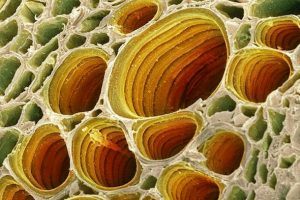Vijay Pande in Scientific American:
 Because biology is the result of evolution and not human development, bringing engineering principles to it is guaranteed to fail. Or so goes the argument behind the “Grove fallacy,” first invoked by drug industry observer Derek Lowe in a critique of Intel CEO Andy Grove in 2007. After being diagnosed with prostate cancer, Grove found himself frustrated by what he described as the “lack of real output” in pharma especially as compared to the drive of Moore’s Law in his own industry.
Because biology is the result of evolution and not human development, bringing engineering principles to it is guaranteed to fail. Or so goes the argument behind the “Grove fallacy,” first invoked by drug industry observer Derek Lowe in a critique of Intel CEO Andy Grove in 2007. After being diagnosed with prostate cancer, Grove found himself frustrated by what he described as the “lack of real output” in pharma especially as compared to the drive of Moore’s Law in his own industry.
This was a naive and invalid criticism from Silicon Valley outsiders, Lowe argued, because “medical research is different [and harder] than semiconductor research”—and “that’s partly because we didn’t build them. Making the things [like semiconductors] from the ground up is a real advantage when it comes to understanding them, but we started studying life after it had a few billion years head start.” So the very idea of engineering biology by nature is doomed to fail, he further wrote, given that “billions of years of evolutionary tinkering have led to something so complex and so strange that it can make the highest human-designed technology look like something built with sticks.”
But we’ve seen incredible advances in the world of biology and tech the last few years, from AI diagnosing cancer more accurately than humans do, to editing genes with CRISPR. So is it still true that the idea of bringing an engineering mindset to bio is another case of starry-eyed technologist solutionism?
More here. [Thanks to Ashutosh Jogalekar.]
